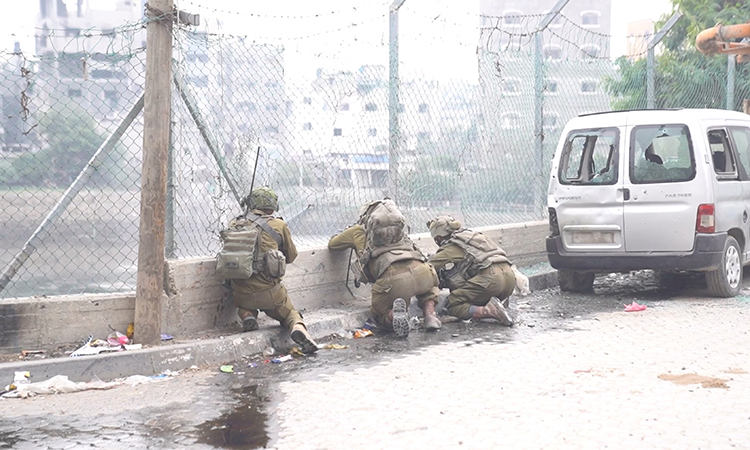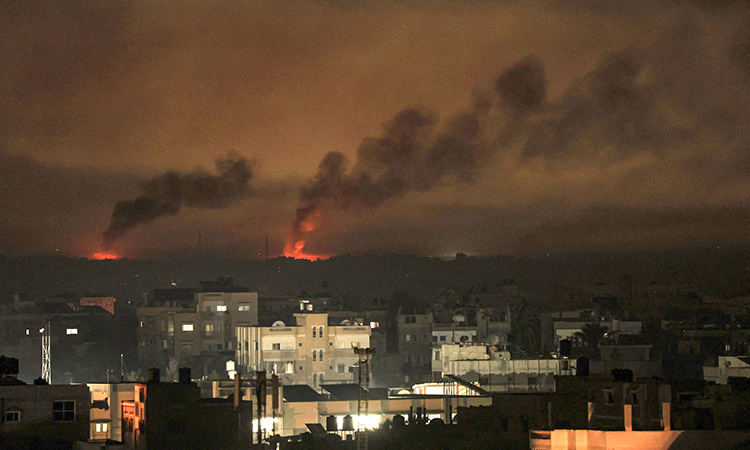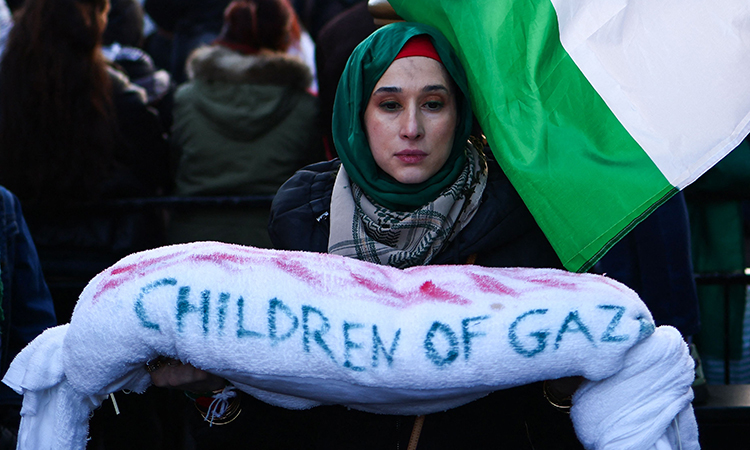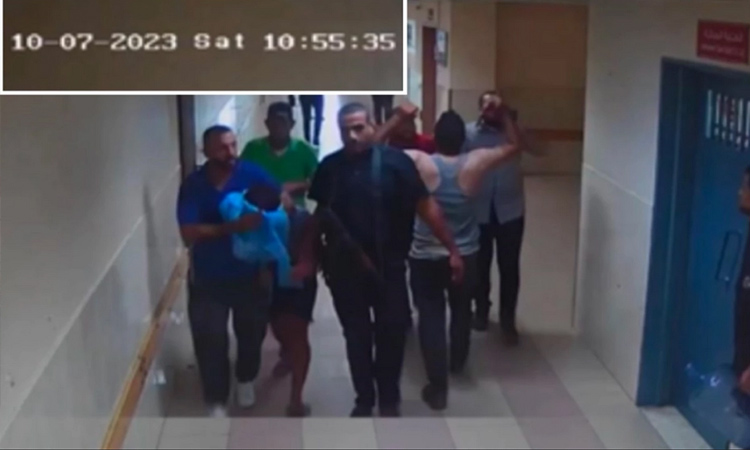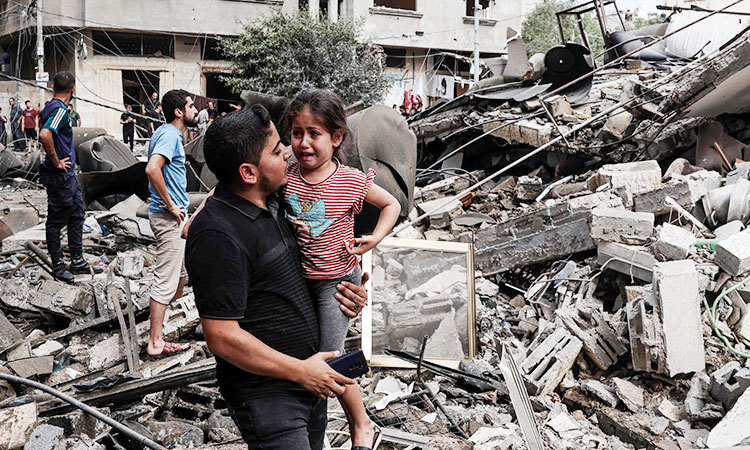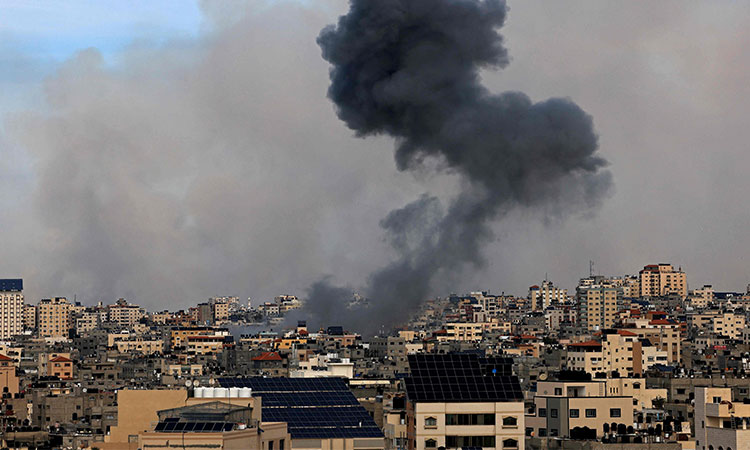Security Council veto casts a negative shadow over protection of civilians in Gaza: Gargash

This picture shows smoke rising during an Israeli strike in Gaza. AFP
Israeli forces pushed on Sunday into southern Gaza, where hundreds of thousands of civilians have fled in search of shelter from bombardments and intense fighting with Hamas.
Aid groups have sounded the alarm on the "apocalyptic" humanitarian situation in the Palestinian territory, warning it is on the brink of being overwhelmed by disease and starvation.
Hamas, which runs Gaza, said on Sunday that Israel had launched a series of "very violent raids" targeting the southern city of Khan Yunis and the road from there to Rafah, near the border with Egypt.
A source close to Hamas and Palestinian Islamic Jihad told the media both groups were involved in "fierce clashes" with Israeli forces on Sunday near Khan Yunis.
Dr. Anwar Gargash, Diplomatic Adviser to the UAE President said on X, “Using the Security Council’s veto against the resolution submitted by the UAE for a ceasefire in Gaza wasted an opportunity to stop human casualties, and cast a negative shadow over the ability of the international community to protect civilians during armed conflicts. The world today is in dire need of unifying its moral standards and aligning itself with humanity.”
At least 17,700 people, mostly women and children, have died in two months of fighting in the narrow strip of territory, according to the latest figures from Gaza's Hamas-run health ministry.
Israel on Saturday said 137 captives remained in the Palestinian territory.
Israeli soldiers operate in Jabalia in the northern Gaza Strip. Reuters
With few options for safety, people across the Gaza Strip sought refuge in hospitals on Saturday.
In the northern Gaza City, an AFP journalist said thousands were sheltering in the Al-Shifa hospital, which is no longer functioning and partly destroyed following an Israeli raid last month.
Hundreds of makeshift tents fashioned from scraps of fabric and plastic filled the hospital's courtyards and garden amid collapsed walls.
Suheil Abu Dalfa, 56, from the city's Shejaiya district, said he had fled heavy bombardment by Israeli planes and tanks.
"It was madness. A shell hit the house and wounded my 20-year-old son," he told the media.
"We fled to the Old City, everything was just strikes and destruction... we didn't know where to go," he said.
"We don't know if they will storm the hospital again."
A picture taken from Rafah shows smoke billowing following Israeli bombardment of Khan Yunis in Gaza. AFP
In central Gaza, Hamas health authorities said Saturday that 71 dead bodies had arrived at the Al-Aqsa Martyrs Hospital in Deir Al Balah over 24 hours.
And in the south of the territory, 62 dead bodies had arrived at Nasser hospital in Khan Yunis, the health authorities said.
An AFP correspondent at the hospital saw a child on a makeshift stretcher and others waiting for care on the floor, while firefighters outside tried to douse a burning building hit by an Israeli strike.
The situation "is not just a catastrophe, it's apocalyptic", said Bushra Khalidi of Oxfam.
‘Death sentence for children’
An estimated 1.9 million of Gaza's 2.4 million people have been displaced.
A protester holds a bundle reading "children of Gaza" while attending a National March for Palestine in London. AFP
Blocked from leaving the narrow territory, they have turned Rafah, near the crossing with Egypt, into a vast camp.
The United Nations children's agency said on Saturday that nearly one million children had been forcibly displaced by the conflict.
With fighting intensifying in southern Gaza, where Israel previously urged civilians to seek shelter, children are running out of safe places to go.
"They are now being pushed further and further south into tiny, overcrowded areas without water, food, or protection, putting them at increased risk of respiratory infections and waterborne disease," said Adele Khodr of UNICEF.
Agence France-Presse
